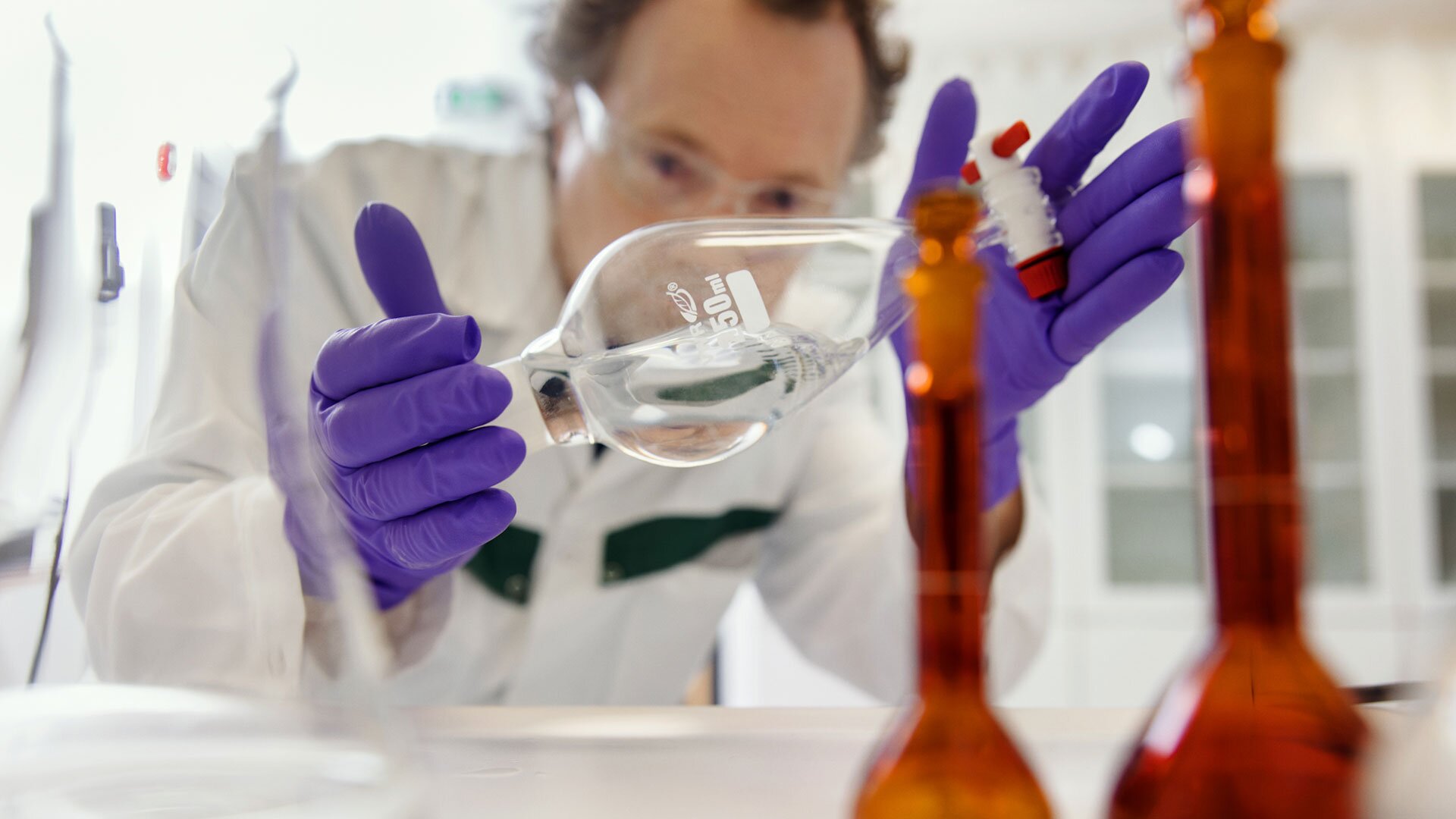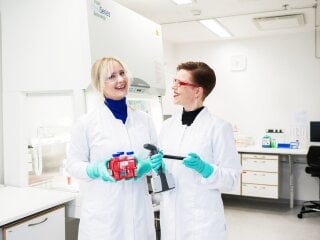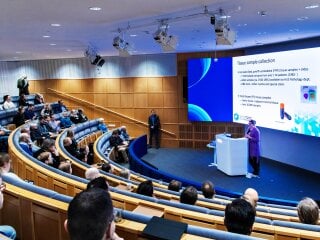How is an API absorbed and distributed through the various tissues in the body, and how does it eventually break down and exit the system as various degradation products? This is what Orion’s DMPK and Safety Sciences unit concentrates as part of Orion’s R&D work. The abbreviation DMPK stands for Drug Metabolism and Pharmacokinetics.
As the unit’s name indicates, its other focus area is Safety Sciences, which is the study of the safety of APIs.
Riikka Oksala, head of the unit, says that the work concentrates mainly on Orion’s proprietary medicines but the unit also carries out a lot of research and studies on generic medicines, which are medicines whose patent protection has expired.
“Our role is to assess the correct dosing and safety of drug candidates entering clinical trials and establish the recommended dosage for the trials. In clinical trials, we measure the levels of the API in the blood circulation at different points in time and determine how and by which route it exits the system. In the case of generic medicines, we ensure that our formulations act in an identical way to the original proprietary product,” Oksala says.
The value of a new treatment to the patient is maximised
Crucial from the patient perspective is to establish a dosage that provides the best possible efficacy safely while minimising the adverse effects. If necessary, different dosages are sought for different patient groups in collaboration with the clinical development team.
“In the first clinical trials, which are conducted on humans, a safe dosage is determined on healthy volunteers. With cancer medicines, the volunteers are cancer patients. The aim is to narrow down the suitable dosage as accurately as possible at prior stages based on laboratory tests.”
Orion is also using simulations based on various mathematical models to an increasing degree to arrive at the correct dosage.
“Our goal is to predict how the medicine behaves in a human body as early as possible through laboratory tests and modelling. And vice versa: if a drug candidate shows unexpected adverse effects in human trials, we can retrace our steps in our models to try and find the mechanisms that cause the side effects. We can also find out what these side effects mean for the further development of the drug candidate.”
Oksala emphasises the importance of DMPK and Safety Sciences as part of Orion’s R&D activities. Another key aspect of the unit’s work is to produce reports in compliance with the regulations to allow the drug administration to assess the overall efficacy of a medicine.
“We aim to find the optimal exposure to the drugs to maximise the value of new therapies for patients.”
Striving towards better predictability
New lines of research introduce new kinds of demands. According to Oksala it is possible to respond to these with greater flexibility and agility and the ability to live in uncertainty for longer periods of time.
“What we need are new and more accurate predictive methods, such as the new organs-on-chips, which are mini organs created with small numbers of human cells that allow rapid testing of the effects of an API,” Oksala says.
“We also need new methods and models on how these aspects are researched. We are learning to make much better use of all the data that we produce and that exists in various databases and literature. By combining all this information, we will be able to see the big picture more accurately than before.”
Multidisciplinary team with unsurpassed experience
Oksala joined the DMPK and Safety Sciences unit as its leader at the beginning of June 2021, having previously worked in various roles at Orion for nearly 20 years. With a PhD in biomedicine from the University of Turku, Oksala has headed two research groups in Orion’s cancer research unit.
The DMPK and Safety Sciences unit has teams in Turku, Espoo and Kuopio, with a total of 80 employees.
“Orion’s main goal in everything it does is high quality, and we are passionate about being part of this story,” Oksala says.
“Our exceptionally committed team members are among the most experienced in the field of drug development and safety research. The multidimensional and multidisciplinary team represents a wide range of skills and sciences from biologists to pharmacologists and pharmacists, cellular biologists, physicists, biochemists and mathematicians. This multidisciplinary approach is a major asset and is a source of great inspiration.”











